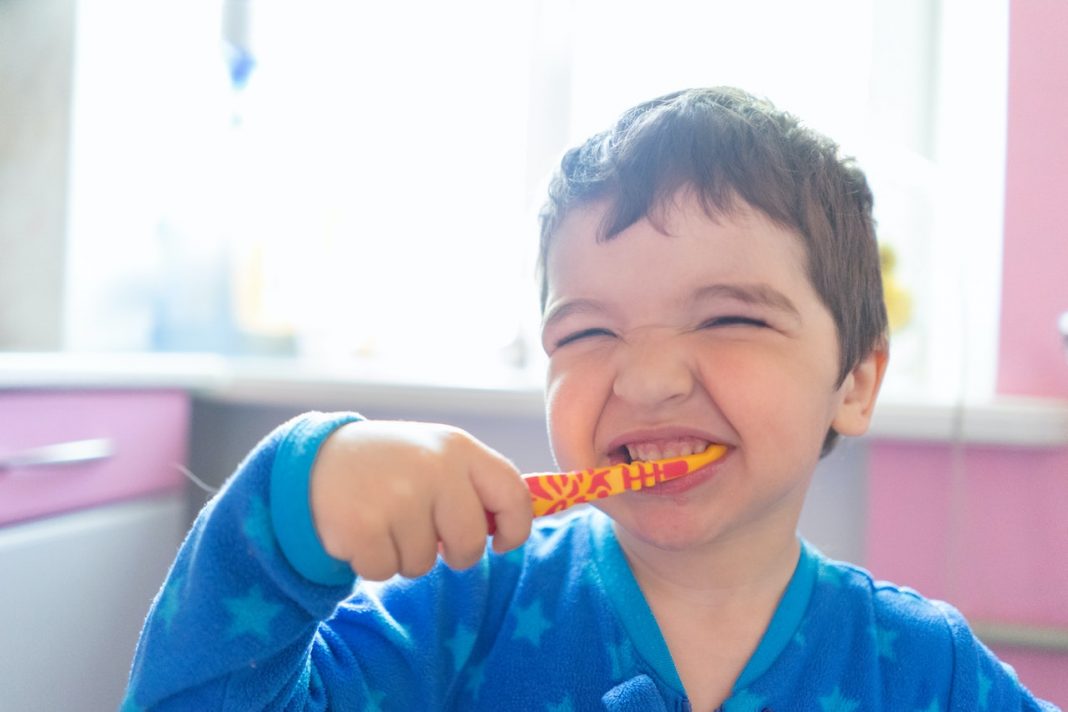Have you ever experience a foul smell whenever your child exhales? Do not worry. It is because of the bad breath in children, also known as halitosis.
Bad breath is common in children due to poor maintenance of oral health, starchy foods, bacterial infection, etc. Many parents complain of bad breath in their children to their dentist.
Bad breath may come and go naturally, so there is nothing to worry about. However, sometimes it lasts throughout the day and becomes a major issue of concern for parents regarding their child’s oral health. So, here in this article, we will discuss about the reasons and remedies fir bad breath in children.
Reasons for bad breath in children
While there can be various causes for bad breath in children, the major problem is insufficient dental hygiene that cannot be overlooked. By noticing the main dental factors that cause bad breath, you can take suggestive measures to get rid of it. Some of the prominent factors that lead to bad breath are the following:
Poor oral hygiene
The most prominent reason for bad breath among children is poor oral hygiene i.e. improper brushing and flossing habits. Bad breath occurs due to the growth of bacteria or microorganisms in the teeth, gums, and upper surface of the tongue.
When not brushed efficiently, the leftover food particles get stuck between the teeth, gums, and tongue line resulting in the formation of bacteria inside the mouth, thereby leading to bad odor.
Dehydration
Dehydration is another main cause of reoccurring bad breath in children. Lack of water intake results in a decrease of saliva flow in the mouth. It lowers the ability of saliva to cleanse the mouth thoroughly and prevent bacteria from growing. As a result, the odor-causing bacteria get an increase in our mouth and cause bad breath.
Dry mouth
Dry mouth is the result of thumb sucking, use of a pacifier, etc among children. Saliva is important in the mouth to cleanse the bacteria and prevent bad breath. When your child breathes through his/her mouth while sleeping, it causes dry mouth which is the biggest factor for bad breath and gas release from the mouth.
Eating smelly foods
Some foods have a naturally unpleasant smell like garlic, onion, etc. Whenever we consume these particular kinds of foods, odorous molecules make their way into our bloodstream resulting in the foul smell through the mouth while breathing.
Similarly hard and dry foods like candies, snacks, chips which are consumed by children often also paves way for the growth of harmful bacteria inside the mouth, thereby causing bad breath.
Diseases and infections
Bad breath is also caused by other infections and diseases such as sinusitis, asthma, tonsils, or adenoids. It gets mucus at the back of the throat and makes space for bacteria to flourish inside the mouth causing bad breath. Experiencing tonsils frequently could also be the result of snoring or sleep apnea. In these cases, it is vital to consult your child’s dental health practitioner or a professional dentist.
Remedies to cure bad breath in children
Maintaining proper oral hygiene in your child is significant to avoid bad breath in your children. Here are some tips to practice good oral hygiene and prevent bad breath:
Brush and floss effectively
Make sure your child brushes his teeth twice a day for at least 2-3 minutes. It will avoid the formation of plaque and tartar on the teeth and protect the gums. Moreover, it is also recommended to brush your child’s teeth with fluoride toothpaste after every meal as it helps in cleaning the teeth efficiently.
In addition to this, flossing is also important to remove the leftover food particles from the teeth and gums and making it healthy.
Rinse your child’s mouth
Rinsing is another effective remedy to restrict the growth of odor-causing bacteria in the mouth from places where your brush can’t reach properly. Using a mouthwash regularly can also help in preventing the bad odor from teeth and tongue.
Use a tongue scraper
The coating or layer of food that forms on the tongue is a leading cause of bad breath. To avoid that, it is important you ask your children to clean their tongue gently with a tongue scraper. It can easily reach the back of your teeth and removes bacteria, debris, or dirty food particles from the mouth.
Keep a check on your child’s daily activities
If your child has a habit of thumb sucking, ensure his hands are cleaned properly with soap and water. Also, his pacifier should be sterilized with boiling water to keep bacteria away.
Nutrition and diet:
Healthy nutrition and a balanced diet also play a crucial role in keeping your child’s oral health in check right from his childhood. Include more fruits and green vegetables like celery, carrots, mushrooms, spinach, and apples in their diet. It will avoid the plaque buildup in the mouth and is effective in preventing bad breath to a greater extent.
Needless to mention, increase the water intake of your child in order to keep him hydrated throughout the day. Water consumption boosts the saliva flow and prevents the risk of bacteria in the mouth.
Visit your dentist regularly
It is fundamental to take your child for regular dental checkups and cleanings. Dental issues treated in the early stages give a long-lasting impact. If you are unable to cope up with your child’s bad breath at home, book an appointment with your dentist.
Wrapping up:
With the poor eating habits and lack of dental care, halitosis or bad breath has become common among young children and toddlers. It not only causes a negative impact on one’s oral health but also become a major concern for maintaining healthy social health. Due to bad breath, children lose their confidence in interacting with other fellow beings and remain isolated.
Thus, it is imperative to take care of your child’s dental health and keep it on top of your priority list. Neglecting dental health can have drastic long term effects on one’s body and mouth. Do not forget to consult your dentist for professional guidance and medications.
Post Abstract:
Bad breath is the result of lack of dental care. Learn the various causes of bad breath in children and remedies to get rid of it.




















